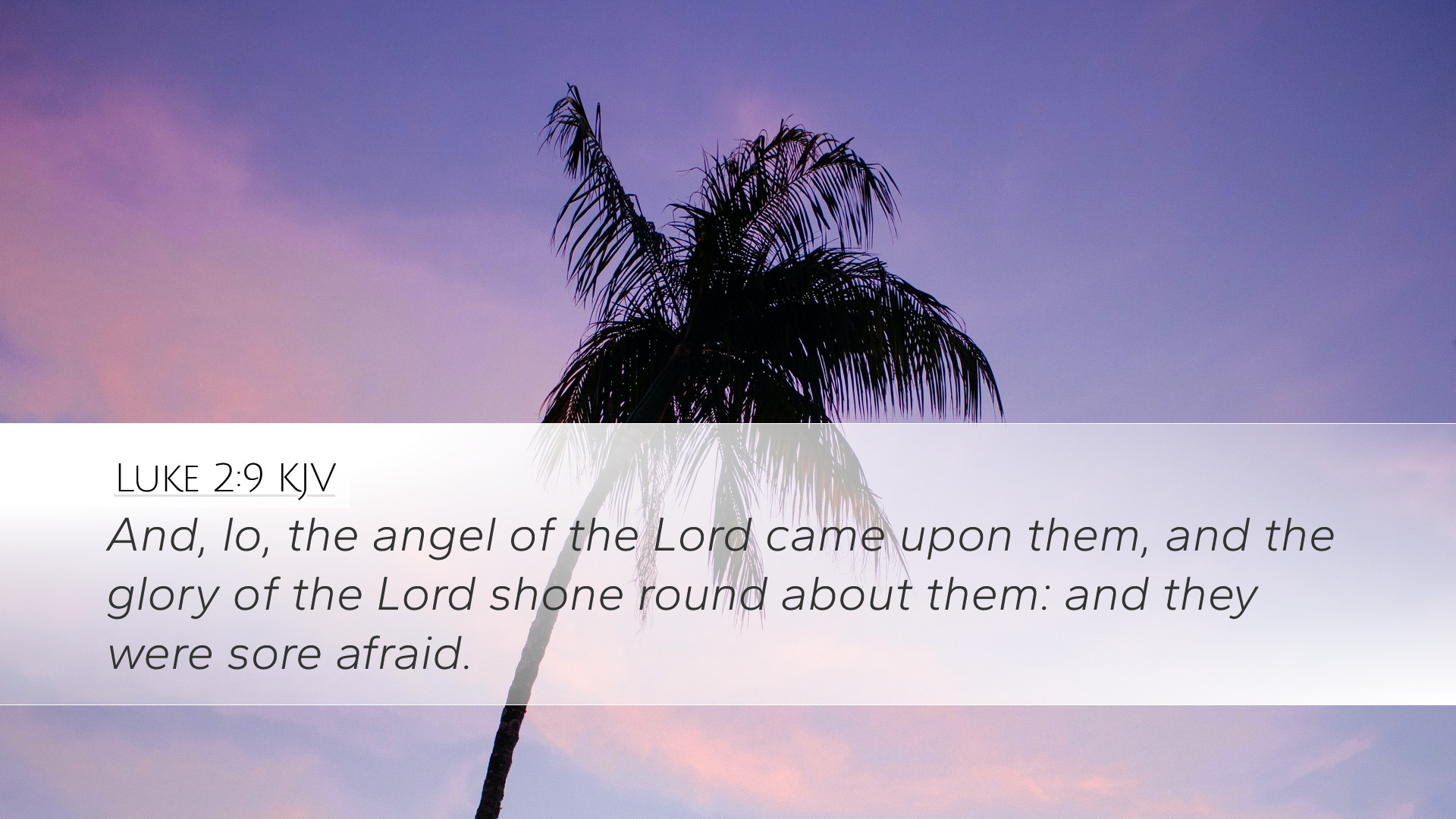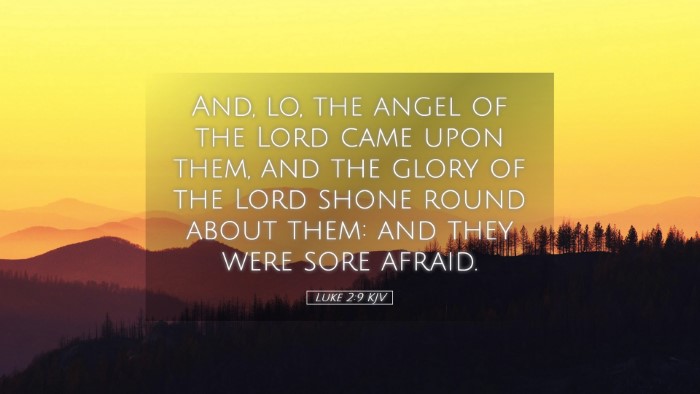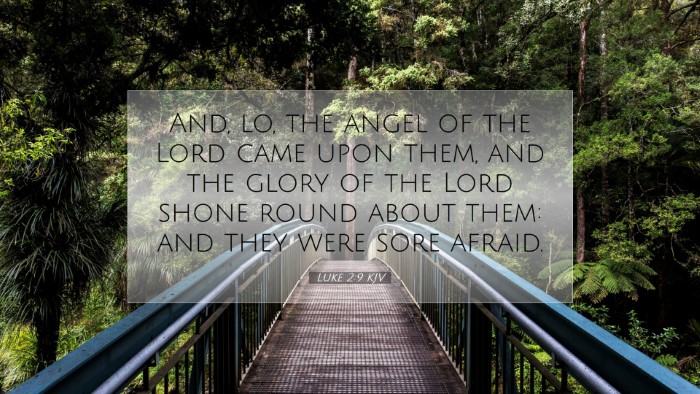Commentary on Luke 2:9
Luke 2:9 states:
"And, lo, the angel of the Lord came upon them, and the glory of the Lord shone round about them: and they were sore afraid." (KJV)
Contextual Background
This verse is situated in the narrative of the birth of Jesus Christ, a momentous event that is significant not only in Christian theology but also in the historical context of the time. The shepherds, who were the recipients of this divine announcement, represent the humble and marginalized members of society. Their encounter with the angel signifies the breaking of the news of salvation to all of humanity, beginning with the least of these.
The Angel of the Lord
The appearance of the angel is a crucial element in this passage. Matthew Henry notes:
"The angel of the Lord came upon them," which denotes a special messenger sent by God, illustrating both His willingness to reveal divine truth and to comfort those in fear.
Albert Barnes expands on this idea, suggesting that this announcement serves as a bridge between the divine and the earthly, highlighting God’s initiative in reaching out to humanity:
"The angel appeared suddenly, indicating that God's interventions often come unexpectedly, startling us from our ordinary lives.
The Glory of the Lord
The phrase "the glory of the Lord shone round about them" is rich with theological meaning:
Adam Clarke comments on this brilliance, stating:
"The glory that accompanied the announcement was a divine illumination, symbolizing God's presence and approval of the message being delivered."
This glory reflects not just a physical light but also a spiritual significance, akin to the Shekinah glory that represented God's presence among His people, signifying holiness and divine truth.
The Reaction of the Shepherds
Importantly, the shepherds' reaction to the angelic visitation – they were "sore afraid" – reflects a common response to divine encounters throughout Scripture:
- Fear of the Divine: Matthew Henry observes that fear is a natural response when confronted with the presence of God.
- Unworthiness: Albert Barnes notes how their fear represents an awareness of their sinfulness and inadequacy in the face of holiness.
- Wondrous Reality: Adam Clarke emphasizes that this fear serves a dual purpose; it signifies awe at the majesty of God yet also represents a humble heart that prepares for grace.
Theological Implications
This passage has rich theological implications for both individual believers and the church as a whole:
- Incarnation: The angel’s message signals the incarnation of Christ, God's ultimate intervention in human history, emphasizing God's accessibility to all, including the lowly shepherds.
- Message of Hope: While the initial encounter provokes fear, it is the beginning of hope. The announcement demonstrates that fear can lead to faith when it is met with God’s grace.
- Universal Redemption: The shepherds symbolize the accessibility of God’s salvation to all sectors of society. It calls for the church to embrace outreach and inclusivity.
Conclusion
Luke 2:9 is a profound verse that touches on themes of divine revelation, the glory of God, human fear, and the forthcoming message of hope for all humanity. The insights offered by public domain commentaries enrich our understanding and provide layers of meaning applicable to our lives today. As pastors, students, theologians, and scholars delve into this passage, they are reminded of the reality of God's presence amongst us, the hope that the gospel brings, and the appropriate response of reverence and faith in light of divine glory.


